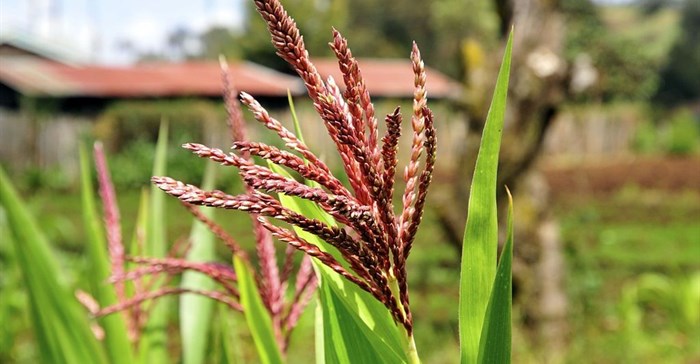Kenyans face bleak year after poor maize, wheat harvests

The Agriculture ministry estimates a 20% drop in maize yields - 32 million 90kg bags down from 37.1 million bags - setting the stage for an acute shortage of the commodity this year.
Maize production in Uasin Gishu County dropped by 25% from 4.4 million to 3.7 million bags in 2017 due to an outbreak of the fall armyworm, head smut disease and sustained drought during planting period.
Similarly, wheat yields plummeted to 430,000 bags from 466,000 bags in 2016 with agriculture experts warning that the shortfall in the harvest of the two sources of staple food will impact negatively on most households. "The anticipated shortage of the cereals will push the prices beyond the reach of most households forcing the government to sustain the food subsidy programme," said Jackson Lagat, an agricultural economist.
Armyworms
Trans Nzoia County, a high maize production region, harvested 4.7 million bags of maize down from five million bags in 2016 and the yield is expected to decline further as a result of Fall armyworms. "The outbreak of Fall armyworms led to increased cost of production and low yield while heavy rains during harvest period resulted in rotting of the crop," said Joseph Cheboi, Uasin Gishu County director of agriculture.
The pests destroyed several hectares of the crop in Kitale, Bungoma, Kakamega, Uasin Gishu, Trans Nzoia, Busia, Nandi, Kericho, Baringo and Nakuru counties.
According to Agriculture Cabinet Secretary Willy Bett, the country is expected to experience maize shortage this year. "The annual maize yield could drop by 20-25% which will further complicate the already unsteady food security situation," said Mr Bett.
Uprooting crop
Most farmers in the North Rift region had not recovered from the outbreak of Maize Lethal Necrosis disease that had earlier ravaged parts of the country, forcing some of the growers to uproot the crop. A farmer in Trans Nzoia County, Edward Kiru, whose maize was invaded by the Fall armyworms said the yields were cut by half.
"In the previous season, I had harvested 30 bags per acre. But due to the armyworm invasion, I only harvested 15 bags per acre. There are a number of pesticides which I'm not sure if they are effective or not. We want the government to assure us of proper pesticides for the armyworms before the next planting season," he said.
Maurice Chepkonga, a farmer from Moiben in Uasin Gishu County, had to contend with a poor harvest, thanks to the armyworm infestation and depressed rains in the first six months of last year. Chepkonga said from his 25 acres, his harvest went down to about five bags per acre from 25 bags in the previous season.
Food security
Most maize farmers in the North Rift region have reduced acreage under maize resulting in a decline in food production.
Agriculture experts in the region said the change of land use from agricultural to commercial was threating food security as the government moves to bolster its strategic grain reserves.
Kenya Agricultural and Livestock Research Organisation deputy director-general, Felister Makini, said the state agency remained underfunded. This hampers efforts to fight the Fall armyworms as scientists research biological means to contain it. "This is a serious pest and funding has been an issue, yet we have not undertaken serious research. There are inadequate funds to conduct research to get the best solutions to the control the pest," he said.
Source: allAfrica

AllAfrica is a voice of, by and about Africa - aggregating, producing and distributing 2000 news and information items daily from over 130 African news organisations and our own reporters to an African and global public. We operate from Cape Town, Dakar, Lagos, Monrovia, Nairobi and Washington DC.
Go to: http://allafrica.com/






















